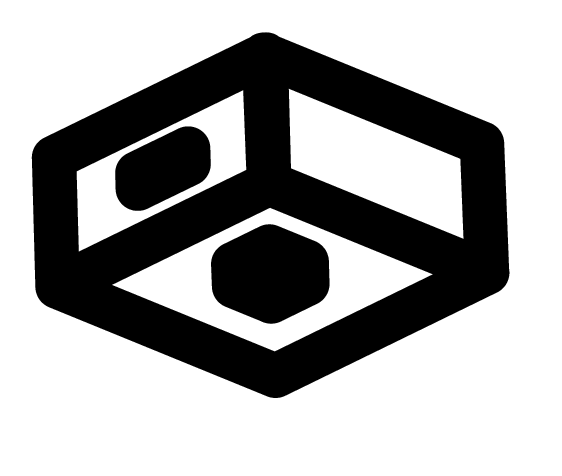Blog
Three Tips For Working With Partner Agencies In The Healthcare Space
Unless your agency is full-service, it is very likely that your client will bring on other shops offering different specialties, and you may be expected to collaborate with them. This is especially true in the healthcare vertical, where the various services that agencies provide often require highly specific skill sets and know-how for navigating legal and regulatory requirements. My agency has collaborated with multiple partner agencies in the healthcare space, several of them on many different lines of business. Working as the stand-alone agency to develop, launch and manage a marketing campaign for a treatment or other healthcare product with ambitious performance goals is hard enough, but a host of other challenges arise when your team must coordinate with other agencies to accomplish your client’s objectives. If you are currently on an agency team working with partner shops on a health-related account, are expecting to do so or are just curious about this vibrant corner of the advertising world, then here are three tips to help set your agency team and your partners up for success.
Read more: Three Tips For Wo...Thinking of joining at The Innovation Centre, the home of Sci-Tech Daresbury?
The Innovation Centre has over 50 serviced offices and 5 laboratory units to rent, and is a high quality setting for events and networking opportunities. Learn about the benefits of joining their community here.
Read more: Thinking of joini...Improving The Healthcare Revenue Cycle With AI And RPA
Imagine that you’re the CEO of a large healthcare provider, and you’re thinking about what to do with AI. You’ve heard about some of the fascinating results out of various research labs about how AI can equal or exceed human physicians in diagnosing cancer, retinal diseases, and even Covid-19. You salivate a bit at the dollars you might bring in from funding organizations and rich donors who want to be associated with these sexy developments. But then you snap out of that dream and focus on the real value of AI for your hospitals. First of all, you know that what works in the lab doesn’t always work at the clinical bedside. Secondly, you remind yourself that the FDA has to approve these AI treatments, and that can take years. The last realization to wipe out your dream is that it’s unlikely any of these AI diagnostic capabilities will reduce your costs; you’ll probably still need the same number human radiologists, ophthalmologists, and so forth. What you really need, it finally occurs to you, is AI to reduce administrative costs. You remember a conference you attended at a lovely resort at which Professor David Cutler, a renowned health economist from Harvard, was speaking. He said that administrative costs take a quarter to a third of total health-care spending in the U.S. He advanced several ideas for lowering costs related to the revenue cycle, prior authorization, and data clearinghouses. The CEO wasn’t sure, but he believed that the professor had mentioned that AI might be able to help with some of these approaches.
Read more: Improving The Hea...Did you already know that BioVille has a Digital Health Hub?
The DigiHub is the place to be for companies and organizations that are active in digital health and e-health. DigiHub is more than just a physical work and meeting place. It is also a virtual digital health community that digitally…
Read more: Did you already k...Innovation Agency Support programme raises £21million for businesses
LCR Health Matters, a Liverpool-based health-tech business support programme, has helped to raise more than £21 million for life sciences businesses across Liverpool City Region. The programme is a partnership that includes the Innovation Agency, Liverpool John Moores University and…
Read more: Innovation Agency...New Report Serves As A Road Map To Decarbonize Healthcare
If it was a country, the healthcare sector would be the fifth-largest emitter of greenhouse gases. A new report launched at this year’s Skoll World Forum outlines how to bring down the sector’s emissions profile. The report, produced by the nongovernmental organization Health Care Without Harm (HCWH) and the global engineering and consulting firm Arup, serves as a road map to decarbonizing the healthcare sector. Globally, the sector accounts for 4.4% of greenhouse gas emissions, most of which come from burning fossil fuels for everything from powering facilities to transporting supplies. In the U.S., healthcare represents an even greater share of the total carbon footprint, 8.5% of U.S. greenhouse gas emissions. According to modeling in this new report, without intervention healthcare’s environmental impact will keep growing. In 2014, the sector produced two gigatons of greenhouse gas emissions, and that annual contribution could triple by 2050. Even if countries fulfill their nationally determined contributions to the Paris Agreement, the authors project that healthcare's annual carbon footprint will still increase to over three gigatons by 2050. The report outlines steps that could put global healthcare emissions on a decreasing trajectory, improving healthcare sustainability and quality. "Anytime we look at solutions to climate change, we're also going to see potential solutions to human health and environmental health at the same time," said Melissa Bilec, an associate professor in the civil and environmental engineering department at the University of Pittsburgh.
Read more: New Report Serves...FREE! Invitation to Wellness & Energy Increase & DOMS Reduction Technique
Ah wellness! How has yours been during the pandemic? In response to the current health, well-being, stress and anxiety challenges, the Keep Fit Kingdom team have developed a short, exciting wellness test study. Our hope is to inspire and encourage people to take care of their health using a simple, practical, step by step method, with lesser reliance on prescription drugs, medicines and overburdened health care services. This short study is also ideal for those who are involved regular exercise that may cause DOMS (Delayed Onset Muscle Soreness) for 24-48 hours post exercise. However, even if you are not engaged in much physical activity you are welcome and encouraged to participate as there are numerous other benefits to be gained.
Read more: FREE! Invitation ...Check out GIANT Health's stand at the Virtual Health Careers Conference today!
Make sure you check out our stand at the Virtual Health Careers Conference today. #VHCC2021. Link to sign up here.
Read more: Check out GIANT H...The British Society of Lifestyle Medicine is inviting you to their very own “Question Time” Sleep event
The British Society of Lifestyle Medicine are bringing together a panel of experts, from the world of lifestyle medicine and the media, to answer questions posed by members and non-members of the BSLM. 12 July 2021 Register here.
Read more: The British Socie...The No Surprises Act: How Healthcare Organizations Can Improve The Transition For Patients
Partner & Co-Founder at Kuroshio Consulting Inc., a management consultant with 20 years of international strategy consulting experience. Young female doctor is consulting a senior patient GETTY As a business owner, and one with more than 20 years of experience in the healthcare space, I know that maneuvering through the outrageous complexity of the provider and payor space to offer healthcare to our employees was beyond taxing. So, I can’t imagine what it must be like for the average consumer. Why is it that I can get a quote for just about any service these days through an app on my phone within minutes, but asking for transparency in what I might be charged as a patient is an insurmountable task? Case in point, if someone undergoes surgery at a hospital, the total cost is known only months after the date of care and flits into their mailbox through multiple invoices from different departments at the same hospital. This also might include “surprise” out-of-network bills, which can be exorbitant. So why do patients have to pay outrageous rates for out-of-network providers when they often lack the opportunity to choose? For surgical procedures, people can typically pick their hospital facility and primary surgeon, but they can’t select any other member of the surgical team (for example, anesthesiologist, radiologist). The same goes for emergencies when someone is transported to a hospital outside of their network or an in-network hospital that is staffed with out-of-network clinicians.
Read more: The No Surprises ...Walk With Path are launching Floave, Soon!
Floave is a wearable fitness device designed to increase motivation and boost performance throughout your exercise journey. Be it an intense workout or a daily long walk, these podiatry insoles work to reduce post-workout pains through vibrations at the soles…
Read more: Walk With Path ar...Doximity Jumps 69% In Debut After Company's $4.6 Billion IPO
Doximity Jumps 69% In Debut After Company's $4.6 Billion IPO
Read more: Doximity Jumps 69...
 Attendees
Attendees Sponsors and
Exhibitors
Sponsors and
Exhibitors
 Webinars
Webinars
 Contact us
Contact us









